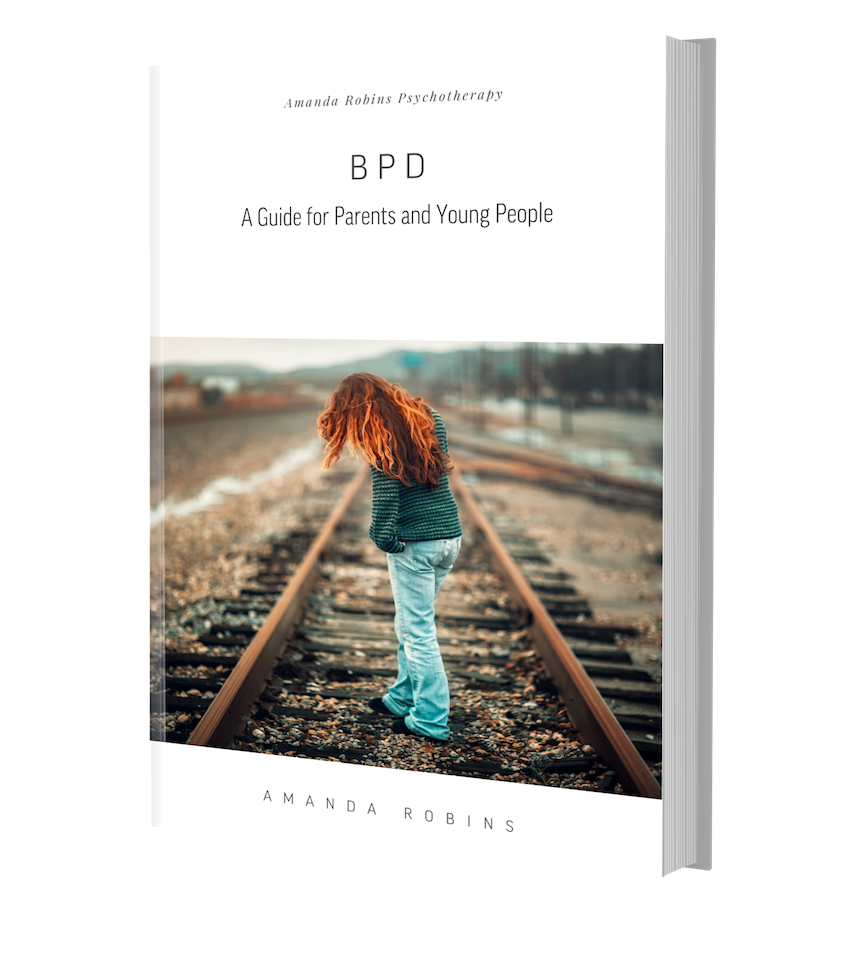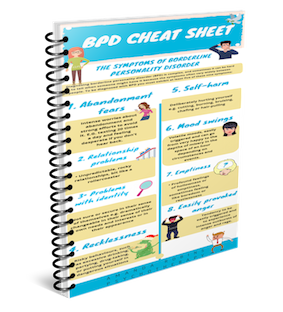Borderline Personality Disorder (BPD) Counselling
You might not identify with the label, but you feel like something needs to change.
I provide emotion focused psychotherapy to help people recover and heal from the trauma that results in BPD.
Are you feeling overwhelmed, confused and worried about your own behaviour?
Maybe you find relationships difficult or feel a bit bamboozled by your own mood swings.
Do you often find it hard to understand yourself?
Are you scared of being abandoned?
Do you feel lost and alone - like no-one can understand or help?
You might also feel
anxious or depressed
empty or ashamed
angry or full of rage
that you will never be happy
like it’s hard to relate to others and feel safe and secure?
people with developmental trauma or bpd often have these issues.
Although some moodiness and difficulties are normal for everyone, with BPD these issues will be more severe and pervasive.
BPD (or Borderline Personality Disorder) is caused by a range of factors including genetic vulnerabilities, environmental factors, and how a child’s temperament and emotional sensitivity interact with the environment when they are young.
Whilst BPD is quite serious, it is also relatively common AND despite what you may have heard, treatable.
BPD is not your fault, nor is it a life-sentence.
Getting good help can make a huge difference in your life
Research tells us that there is good evidence for the success of treating BPD using psychotherapy.
Psychotherapy is a form of talk therapy which aims to help you develop self-awareness and improve your ability to enjoy stable relationships.
Psychotherapy with a caring, empathetic and skilled therapist can help you learn how to manage your emotions, have more fulfilling relationships and cope better at home, school or work.
Therapy for BPD works by helping you develop a stronger relationship with yourself.
Knowing what you want, need, and how you feel influences how you are with other people.
When you lose touch with these things, you can’t be stable in your friendships or close relationships and you might also have trouble managing your feelings. Without a secure base it’s impossible to feel safe, to branch out and explore, enjoy social interactions, take reasonable risks and make good decisions for yourself.
So how can you create a secure base?
Psychotherapy for BPD can help you develop the self-awareness and sense of security you need to really enjoy a good life.
BPD therapy will allow you to slowly feel more secure and compassionate towards yourself as you come to understand your trauma-based responses and reactions.
The aim of counselling for BPD is to integrate the parts of you that may have become split off due to early trauma.
Trauma that occurs before we have words is not able to be thought about or remembered directly.
When there is a mismatch between environmental holding or nurturing capacity and a young child’s needs, the emotional states that are a normal part of early experience can overwhelm our system and cause intolerable stress. If this stress is ongoing it can lead to changes in the developing brain and more serious problems later on.
In an invalidating environment, the growing child doesn’t get the opportunity to understand their emotional life, learn to self-soothe or develop an awareness of their own needs and feelings. This can lead to a sense of “emptiness” or lack of identity as the child doesn’t learn to recognise, accept or name their feelings. Often young people who are emotionally sensitive will be more vulnerable to developing BPD.
BPD counselling can help you develop awareness and internal stability through learning to understand your internal states and holding onto your sense of self in the context of relationships.
Healthier Relationships
BPD Counselling can help you learn how to manage a close relationship through learning to manage your relationship with your therapist. This is achieved through coaching, encouraging self-awareness and learning to understand what is going on underneath behaviour.
The therapist will talk with you about your reactions, responses and assumptions and how certain ways of thinking might be creating problems for you.
The therapist will also be able to help you understand how your behaviour might be affecting others through exploring challenging behaviours (and the reasons behind them) in a non-judgemental and compassionate way.
An experienced BPD therapist will also model good management and containment of feelings and be able to explore the feelings and emotions that may cause you to behave in ways that are puzzling, distressing or counter-productive.
As you learn self-awareness through psychotherapy, you will understand better what is going on and be able to check for signs that you are getting overwhelmed or upset.
Through BPD therapy you will learn how to handle situations which might otherwise be triggering for you. Although other forms of treatment can help with learning social skills and self-soothing, psychotherapy can help at a deeper level by resolving the trauma and identity issues underlying BPD.
BPD counselling can help you become calmer and more secure, able to withstand the ups and downs of life. As you heal, you will discover a new and more rewarding relationship with yourself and the people who are important to you.
Take the Steps to Help Yourself Heal Now
Schedule your first appointment here.
You may still have some concerns about coming to therapy.
I’ve tried everything, but nothing seems to work. How do I know you will be able to help me?
It can be hard to have hope in this situation. Often the difficulties with treatment are more to do with finding the right therapist than with the problem being insoluble. In order for any therapy to work, the client needs to stay in therapy.
My experience of working with people with BPD is that, although it is serious, people will respond to a therapist who is sensitive and empathetic and one who is able to maintain strong boundaries.
The aim of BPD counselling is to help you by promoting a feeling of safety and connection and most importantly, trust.
What if I find it hard to stay in therapy?
For BPD treatment, the therapeutic relationship is very important. I will work hard to develop trust and rapport with you. This is a vital part of the work.
My experience tells me that people who have previously found therapy too difficult will respond well to an understanding, empathetic presence and to being in a space where they can talk about what is troubling them without feeling judged.
How do I know that I will be safe?
This is an important consideration, especially for someone with BPD. We can talk about what will help to keep you safe and explore coping strategies, including emotional regulation and self-soothing techniques for times between sessions.
My aim is to provide a safe and nurturing environment where you can trust me to listen to you in a non-judgemental and accepting way. I will work to help you feel safe and encourage you look after yourself as well as to reach out when you need to.
The experience of therapy and a secure relationship with an empathetic therapist will allow you to trust others and yourself, and make you less likely to put yourself at risk.
It sounds like this will take a while: how will I know that it’s working?
Therapy for Borderline Personality Disorder involves developing a trusting, warm and secure relationship whilst still maintaining the boundaries needed to help you feel safe.
The therapeutic relationship is what will help heal you.
This can take a while to develop and there can also be ups and downs during this time, where you might feel stressed or upset. That’s normal for any therapy.
The aim of therapy is to help you learn to manage your emotions, self-soothe and develop a better sense of self. As the therapy unfolds you will become calmer and less volatile and you will be able to enjoy life much more.
I’ve heard that therapy is expensive. How will I afford all this, especially if it takes a long time?
As a social worker, I am committed to making therapy affordable for everyone. I offer Medicare rebateable sessions to eligible clients, and can offer discounts to those with a health care card. If money is providing an obstacle to beginning (or continuing) therapy, we can discuss how to make it more affordable for you.
Psychotherapy for BPD is an investment in you and your relationships. By helping you develop more self-awareness and better coping strategies, you are investing in your future.
BPD therapy will help you develop better coping strategies and support you as you learn to understand and have compassion for yourself. The therapy will support you in creating a more fulfilling, authentic and meaningful life.






















